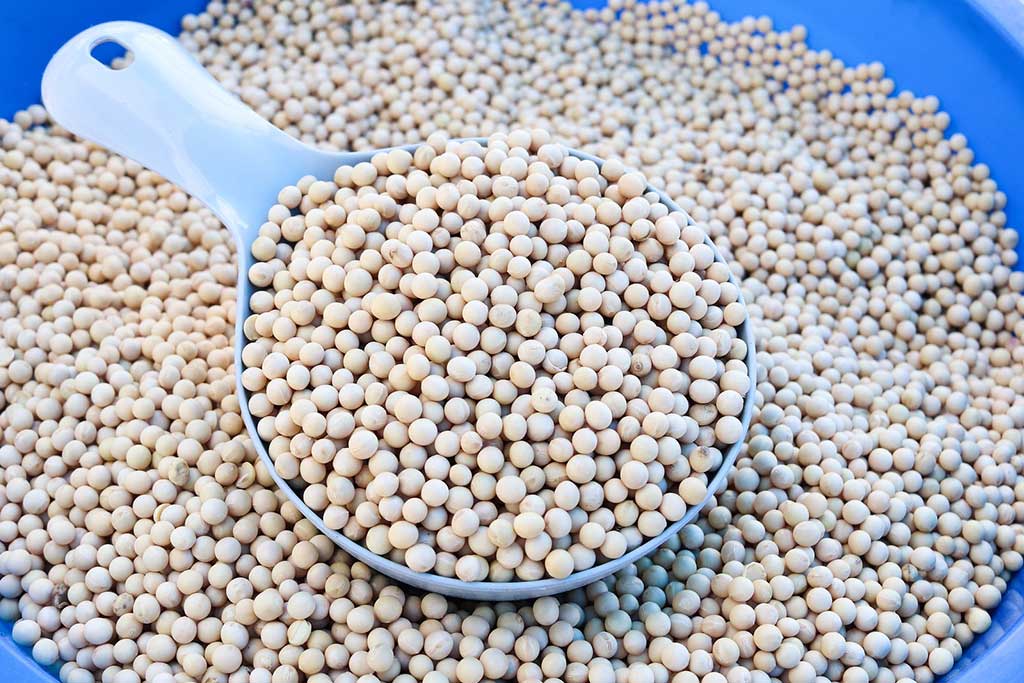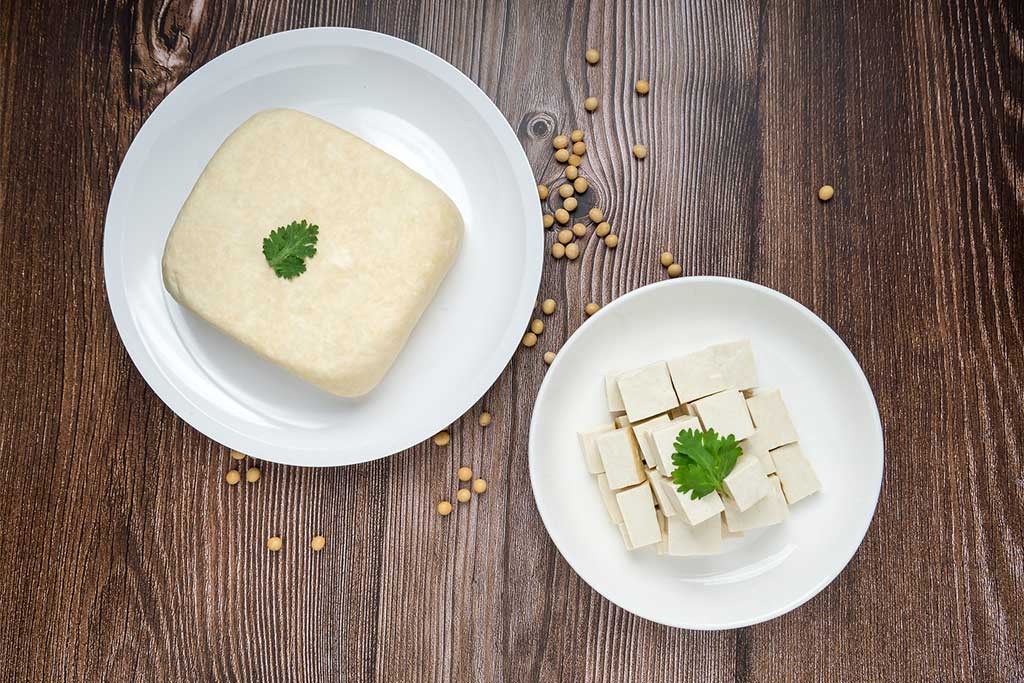What is Tofu? Exploring its Health Benefits, Nutrition, and Facts
Table of Contents:
1. Introduction
2. What is Tofu?
3. The Nutrition Value of Tofu
4. Health Benefits of Tofu
4.1. Heart Health
4.2. Bone Health
4.3. Weight Management
4.4. Diabetes Control
4.5. Cancer Prevention
5. How to Incorporate Tofu into Your Diet
6. Tofu Myths and Facts
6.1. Myth: Tofu is Bland and Tasteless
6.2. Myth: Tofu is Only for Vegans and Vegetarians
6.3. Myth: Tofu Contains High Levels of Estrogen
7. FAQ Section
1.Introduction
Tofu has gained significant popularity in recent years as a nutritious and versatile food choice. Whether you’re a vegetarian, vegan, or simply looking to incorporate healthier options into your diet, tofu deserves a spot on your plate. In this comprehensive guide, we will delve into the world of tofu, exploring its definition, nutritional value, health benefits, dispelling myths, and providing tips on how to incorporate it into your daily meals.
2. What is Tofu?
Tofu, also known as bean curd, is a versatile soy-based food product that has been a dietary staple in many Asian cultures for centuries. It is made from coagulated soy milk, which is then pressed and formed into blocks or other shapes. Tofu comes in different varieties, including firm, soft, silken, and extra-firm, each offering unique textures and applications in cooking.

Tofu’s creation begins with soybeans. These legumes are soaked, cooked, and ground into a smooth paste. The resulting paste is then mixed with water and boiled, creating soy milk. The next step involves coagulating the soy milk by adding a coagulant, traditionally nigari (derived from seawater) or gypsum. This coagulation process causes the soy proteins to solidify and form curds. The curds are then separated from the liquid, pressed to remove excess moisture, and molded into the desired shape.

Tofu has a mild and delicate flavor on its own, allowing it to absorb the flavors of other ingredients when cooked or marinated. This characteristic makes tofu highly versatile in various culinary applications and cuisines worldwide.
Tofu is commonly used as a substitute for meat or other animal-based proteins in vegetarian and vegan dishes. Its ability to mimic the texture of meat and absorb flavors has made it a popular ingredient in stir-fries, curries, stews, soups, salads, and even desserts. Tofu can be pan-fried, deep-fried, grilled, baked, or steamed, offering a wide range of culinary possibilities.
Beyond its versatility, tofu has gained popularity due to its nutritional value. It is a valuable source of plant-based protein, making it an excellent choice for individuals following vegetarian or vegan diets, as well as those looking to reduce their intake of animal products. Tofu is also low in saturated fat and cholesterol, making it a heart-healthy protein alternative.
In addition to protein, tofu is a rich source of essential nutrients. It contains iron, calcium, magnesium, phosphorus, and potassium. Tofu is also a good source of vitamins, including vitamin B1 (thiamine), vitamin B2 (riboflavin), vitamin B3 (niacin), vitamin B6, folate, and vitamin K.
Silken tofu, with its soft and delicate texture, is often used in smoothies, desserts, sauces, and dressings, providing a creamy consistency and added nutritional value. Firmer varieties of tofu, such as firm or extra-firm tofu, are ideal for stir-frying, grilling, and baking, as they hold their shape well and develop a slightly chewy texture when cooked.

Overall, tofu is a nutritious and versatile food that can be enjoyed by individuals with various dietary preferences. Whether you’re seeking a plant-based protein source, looking to expand your culinary horizons, or simply wanting to embrace a healthier lifestyle, tofu offers a range of benefits and culinary possibilities that are worth exploring.
3. The Nutritional Value of Tofu
Tofu is renowned for its impressive nutritional profile, making it a valuable addition to a balanced and healthy diet. Packed with essential nutrients and considered a complete protein, tofu provides numerous health benefits. Let’s delve into the specific nutritional components of this soy-based food.
Protein: Tofu is an excellent source of plant-based protein. A 100-gram serving of tofu typically contains around 8 grams of protein. Protein is essential for building and repairing tissues, supporting immune function, and producing enzymes and hormones in the body. Tofu is particularly beneficial for individuals following vegetarian or vegan diets, as it offers a protein source that is equivalent to many animal-based proteins.
Calcium: Tofu is a rich source of calcium, a mineral vital for maintaining healthy bones and teeth. Calcium also plays a crucial role in nerve function, muscle contraction, and blood clotting. A 100-gram serving of tofu can provide around 350 milligrams of calcium, contributing significantly to the daily recommended intake for adults.
Iron: Tofu contains iron, an essential mineral involved in oxygen transport throughout the body. Iron is necessary for the production of red blood cells and the prevention of iron-deficiency anemia. Tofu is a particularly beneficial iron source for individuals following plant-based diets, as the iron in tofu is non-heme iron, which is more easily absorbed when consumed with vitamin C-rich foods. The iron content in tofu varies depending on the processing methods and the coagulant used.
Magnesium: Tofu is a good source of magnesium, a mineral involved in more than 300 biochemical reactions in the body. Magnesium supports energy production, muscle and nerve function, blood pressure regulation, and bone health. A 100-gram serving of tofu can provide around 70 milligrams of magnesium.
Phosphorus: Tofu is rich in phosphorus, another essential mineral that plays a critical role in bone health, energy production, and DNA synthesis. Phosphorus also contributes to the maintenance of normal cell function and the formation of strong teeth. A 100-gram serving of tofu can contain approximately 140 milligrams of phosphorus.
Potassium: Tofu contains potassium, an essential mineral and electrolyte that helps regulate fluid balance, nerve function, and muscle contractions. Adequate potassium intake is important for maintaining healthy blood pressure levels. A 100-gram serving of tofu may provide around 130 milligrams of potassium.
Vitamins: Tofu contains various vitamins, including vitamin B1 (thiamine), vitamin B2 (riboflavin), vitamin B3 (niacin), vitamin B6, folate, and vitamin K. These vitamins are essential for energy production, red blood cell formation, nervous system function, and overall health.
Soy Isoflavones: Tofu, as a soy-based product, contains naturally occurring compounds called isoflavones. These plant compounds act as antioxidants and phytoestrogens. Isoflavones have been associated with potential health benefits, such as reducing the risk of heart disease, improving bone health, and providing relief from menopausal symptoms. The exact amounts of isoflavones in tofu can vary depending on factors such as the soybean variety, processing methods, and coagulant used.
It’s important to note that the nutritional composition of tofu may vary depending on the brand, type, and processing methods. Checking the nutrition label on the specific tofu product you purchase can provide accurate information about its nutritional content.
Incorporating tofu into your diet can be a smart way to enhance your protein intake, obtain essential minerals, and diversify your nutrient profile. Whether you follow a vegetarian, vegan, or omnivorous diet, tofu offers a valuable combination of nutrients that support overall health and well-being.

4.Health Benefits of Tofu
4.1. Heart Health
The consumption of tofu has been linked to several heart health benefits. Tofu is low in saturated fat and cholesterol, making it a heart-healthy alternative to animal-based proteins. It also contains unsaturated fats, particularly omega-3 fatty acids, which can help reduce the risk of heart disease and promote overall cardiovascular health.
4.2. Bone Health
Tofu is a rich source of calcium and isoflavones, both of which play a vital role in maintaining strong and healthy bones. Calcium is essential for bone development and strength, while isoflavones, a type of plant compound, have been shown to reduce the risk of osteoporosis and improve bone mineral density.
4.3. Weight Management
Due to its high protein content and low-calorie nature, tofu can be a valuable ally in weight management efforts. Protein is known to increase satiety and reduce appetite, leading to a decreased calorie intake. Incorporating tofu into a balanced diet can help support healthy weight loss or maintenance goals.
4.4. Diabetes Control
Tofu has a low glycemic index, which means it does not cause a rapid increase in blood sugar levels. This makes it an excellent food choice for individuals with diabetes or those aiming to manage their blood sugar levels. Additionally, the isoflavones found in tofu may contribute to improved insulin sensitivity, further aiding in diabetes control.
4.5. Cancer Prevention
Several studies suggest that tofu consumption may help reduce the risk of certain types of cancer, including breast, prostate, and colorectal cancer. Isoflavones found in tofu possess antioxidant and anti-inflammatory properties that may inhibit the growth of cancer cells and protect against DNA damage.

5. How to Incorporate Tofu into Your Diet
Tofu’s versatility makes it easy to incorporate into a wide range of dishes. It absorbs flavors well and can be prepared in numerous ways, such as stir-frying, grilling, baking, or even blending into smoothies. Consider marinating tofu in your favorite seasonings before cooking to enhance its taste. It can be used as a substitute for meat or added to salads, soups, stir-fries, and even desserts. Experimenting with different recipes will help you discover your favorite ways to enjoy tofu.
6. Tofu Myths and Facts
6.1. Myth: Tofu is Bland and Tasteless
Fact: Tofu is often perceived as bland due to its mild flavor on its own. However, its ability to absorb flavors makes it an ideal ingredient in various dishes. When properly seasoned and cooked with complementary ingredients, tofu can be incredibly flavorful and delicious.
6.2. Myth: Tofu is Only for Vegans and Vegetarians
Fact: While tofu is a popular protein source for vegans and vegetarians, it can be enjoyed by anyone, regardless of dietary preferences. Incorporating tofu into your meals can provide a nutritious alternative to animal-based proteins and diversify your diet.
6.3. Myth: Tofu Contains High Levels of Estrogen
Fact: There is a misconception that tofu contains high levels of estrogen. While tofu contains plant compounds called phytoestrogens, they are structurally different from the estrogen hormone found in humans. Research suggests that moderate consumption of tofu does not have adverse effects on hormone levels in most individuals.
Tapping into the Versatility of Tofu
Incorporating tofu into your diet can be a game-changer for your health and culinary experiences. With its impressive nutritional value, numerous health benefits, and ability to adapt to various flavors and cooking methods, tofu offers a versatile and delicious way to meet your dietary goals. Whether you’re aiming to improve heart health, maintain strong bones, manage weight, control diabetes, or reduce cancer risk, adding tofu to your meals can be a smart and enjoyable choice.
7. FAQ Section
Q1: Can tofu be consumed by people with soy allergies?
A1: No, individuals with soy allergies should avoid consuming tofu or any soy-based products. Allergies to soy can cause adverse reactions, ranging from mild discomfort to severe allergic reactions.
Q2: Is tofu suitable for children?
A2: Tofu can be a valuable source of nutrients for children, especially as a plant-based protein option. However, it is advisable to consult with a pediatrician before introducing tofu into a child’s diet to ensure it is appropriate for their individual needs.
Q3: How should tofu be stored?
A3: Tofu should be stored in the refrigerator, preferably in a sealed container filled with water. Change the water daily to maintain freshness. Unopened tofu can be kept in the refrigerator for up to one week, while opened tofu should be consumed within 3-4 days.
Q4: Can tofu be frozen?
A4: Yes, tofu can be frozen to extend its shelf life. Simply drain the tofu, wrap it tightly in plastic wrap or place it in an airtight container, and freeze. Thawed tofu may have a slightly altered texture, but it can still be used in various dishes.
Q5: Is organic tofu better than regular tofu?
A5: Organic tofu is made from organically grown soybeans and does not contain genetically modified organisms (GMOs). If avoiding GMOs and supporting organic farming practices are important to you, then organic tofu may be a preferable choice. However, both regular and organic tofu provides similar nutritional benefits.
With its myriad health benefits, culinary versatility, and wide availability, tofu is a nutritious addition to any diet. Embrace the world of tofu and unlock a world of delicious possibilities that nourish your body and excite your taste buds.

